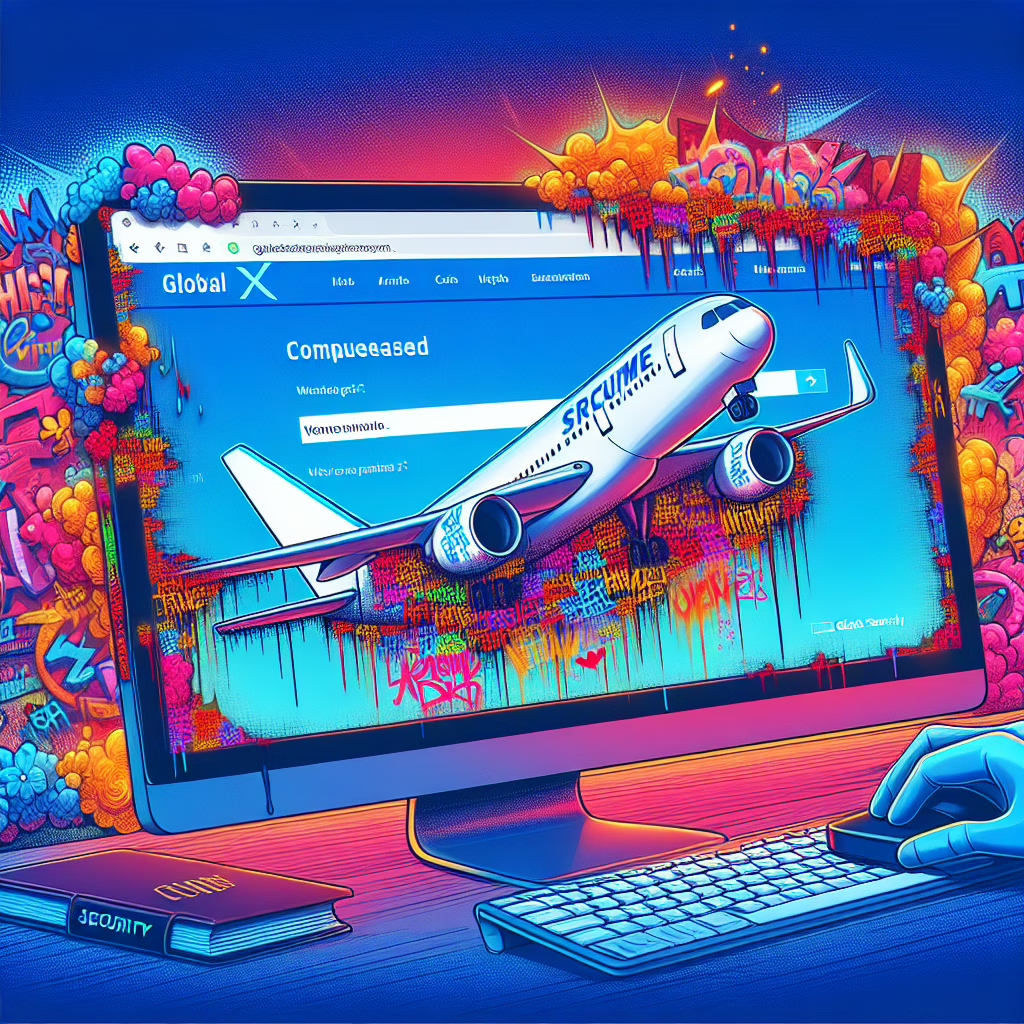In a shocking twist that would make even the most seasoned cybersecurity expert raise an eyebrow, the GlobalX airline website recently fell victim to hackers. Yes, you heard it right! The same website that plays a pivotal role in the U.S. deportation process has been defaced, causing quite a stir in the tech world and sparking discussions about security in 2025. While we might expect hackers to target big banks or social media giants, it seems they’ve decided to take a detour into the world of aviation.
What Happened to GlobalX?
On a day like any other, users trying to access the GlobalX website were met with a rather unsettling surprise. Instead of booking flights or checking itineraries, they encountered a vibrant display of hacker artistry—complete with messages that raised eyebrows and alarm bells alike. The website’s defacement not only showcased the hackers’ skills but also highlighted serious questions about security measures in place for sites handling sensitive information.
Now, one might ask, why would hackers target an airline involved in deportation? Well, as it turns out, this isn’t just any airline; GlobalX has been involved in transporting individuals facing removal from the United States. This makes them an intriguing target for those looking to make a statement or perhaps disrupt operations.
The Implications of Hacking an Airline
When we think about airlines being hacked, our minds often jump straight to scenarios involving flight delays or compromised passenger data. However, the implications go far beyond just inconvenience. In this case, the breach raises critical questions about how prepared organizations are for cyber threats.
The breach could potentially affect not only flight operations but also touch on sensitive matters related to immigration and deportation processes. If there’s one thing we’ve learned from previous incidents, it’s that hackers can exploit vulnerabilities to gain access to confidential data—making it crucial for companies like GlobalX to bolster their security protocols.
How Can Airlines Boost Their Security?
In light of this incident, let’s delve into some proactive measures that airlines can adopt to enhance their security. After all, who doesn’t want a safer travel experience?
- Regular Security Audits: Just like your favorite coffee shop checks its espresso machine regularly, airlines should conduct frequent security audits. This helps identify vulnerabilities before hackers can exploit them.
- Employee Training: Imagine if everyone at GlobalX was trained on recognizing phishing emails! Proper training can empower employees to be the first line of defense against cyber threats.
- Multi-Factor Authentication: Adding an extra layer of security is like putting a lock on your bike—even if someone steals it, they won’t get far without the key!
- User Awareness Campaigns: Airlines should engage with passengers about how they can help keep their data safe while traveling. A little knowledge goes a long way!
The Road Ahead for Aviation Security
The incident involving GlobalX serves as a wake-up call for not just airlines but all businesses handling sensitive information. As technology evolves, so do cyber threats. The year is now 2025, and if there’s anything we know for sure, it’s that staying ahead of cybercriminals requires continuous adaptation and investment in security.
This breach may have been unfortunate for GlobalX and its users, but it offers a valuable lesson on the importance of robust cybersecurity measures across all industries—not just aviation. To that end, continuous training and the latest technologies are essential for preserving the integrity of sensitive data.
If you’re an aviation aficionado or simply concerned about cybersecurity in today’s digital age, we invite you to share your thoughts below! What measures do you think are essential for keeping our air travel secure?
A big shout-out to TechRadar for shedding light on this important issue! You can read their original article here. Thanks for keeping us informed!

